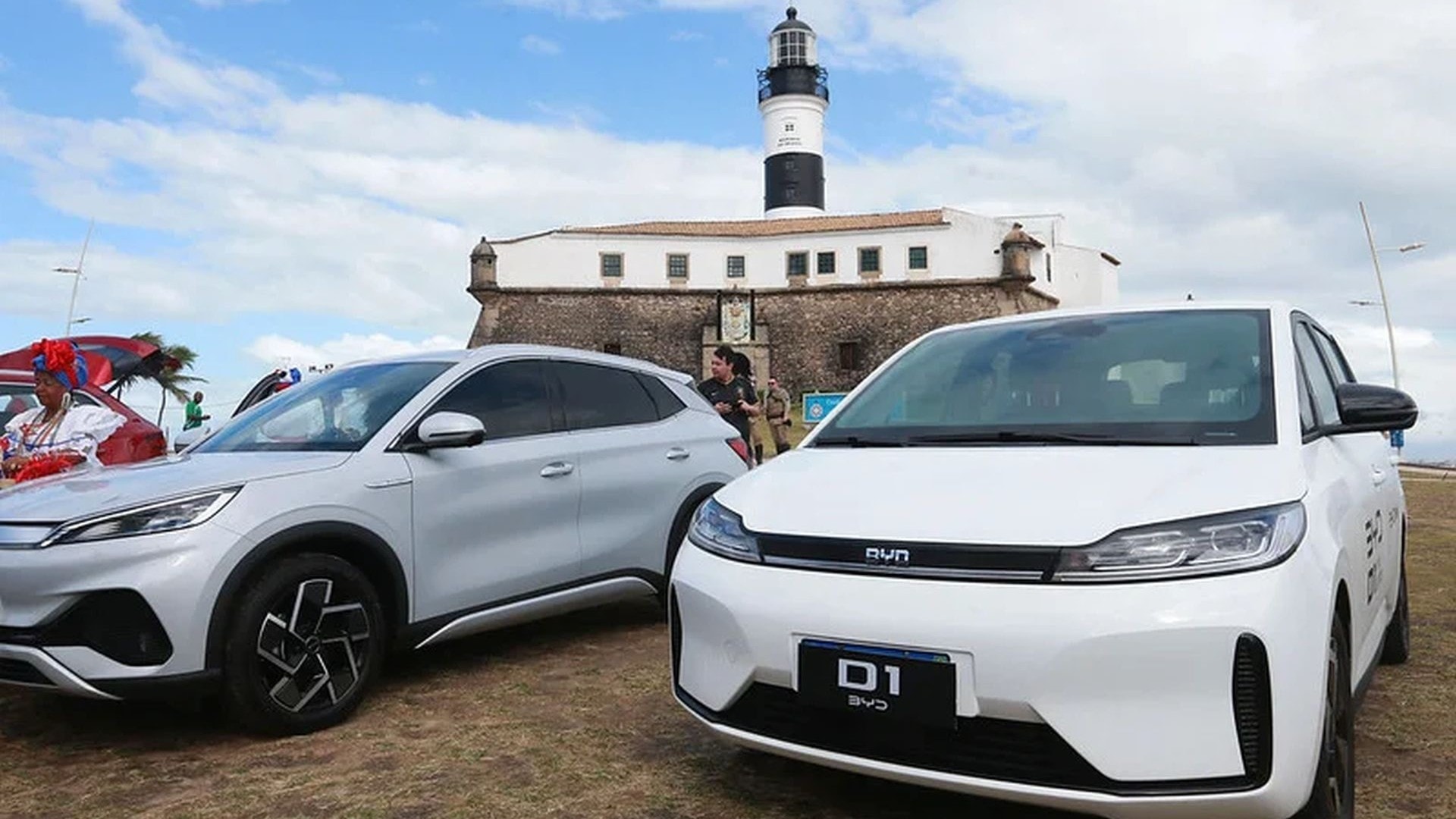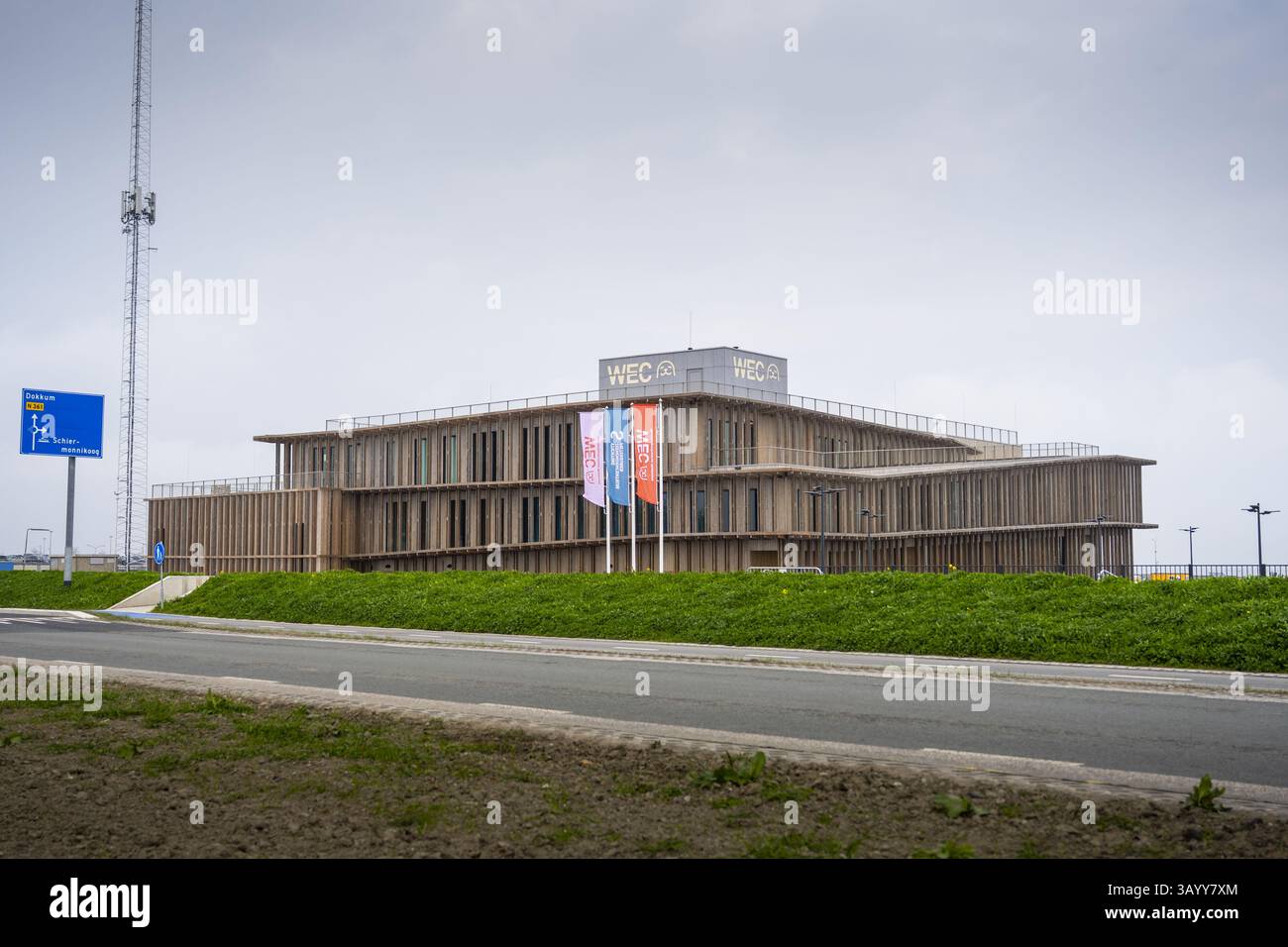Analysis: Ford's Brazilian Exit And BYD's EV Market Opportunity

Table of Contents
Ford's Exit from Brazil: A Deep Dive
Economic Factors Contributing to Ford's Decision
Ford's decision to exit the Brazilian passenger car market wasn't impulsive. It stemmed from a confluence of significant economic challenges. The Brazilian economy, while showing periods of growth, has also experienced considerable volatility, impacting consumer spending and investment. High import tariffs imposed on vehicles and parts significantly increased Ford's production costs, reducing profitability. The fluctuating Brazilian Real against major currencies like the US dollar further exacerbated these financial pressures.
- High Import Tariffs: These tariffs added a substantial burden to the cost of importing components, making Brazilian-produced vehicles less competitive globally.
- Currency Fluctuations: The unpredictable nature of the Brazilian Real made it difficult to accurately forecast costs and profits.
- Sluggish Sales: Persistent economic downturns in Brazil led to lower consumer demand for automobiles, impacting sales figures across the board, including Ford's.
- Inflationary Pressures: High inflation eroded purchasing power, making car ownership less accessible to many Brazilians.
These economic headwinds, coupled with other challenges, ultimately led Ford to prioritize its resources elsewhere.
Market Challenges Faced by Ford in Brazil
Beyond economic factors, Ford also faced stiff competition within the Brazilian automotive market. Established players with strong local presence and deeply rooted brand loyalty presented a formidable challenge. The market demonstrated a clear shift in consumer preferences towards SUVs and smaller, more fuel-efficient vehicles—segments where Ford's portfolio might have lacked the necessary strength.
- Intense Competition: The Brazilian automotive market is highly competitive, with both established international and local brands vying for market share.
- Shifting Consumer Preferences: The increasing popularity of SUVs and smaller vehicles presented a challenge to Ford's existing product lineup.
- Brand Perception: Maintaining and enhancing brand image and customer loyalty in a saturated market proved demanding for Ford.
Strategic Realignment and Global Focus
Ford's exit from Brazil is part of a broader global restructuring strategy aimed at focusing resources on more profitable and strategically important markets. The company has signaled its commitment to significant investments in the development and production of electric vehicles, highlighting its shift towards sustainable mobility solutions. This strategic realignment requires prioritizing markets that offer the best return on investment and align with the company's long-term vision.
- Focus on Electrification: Ford's significant investment in electric vehicles means resources must be concentrated in markets supportive of this transition.
- Profitability Prioritization: The decision reflects a need to focus on markets offering higher profit margins and sustainable growth.
- Global Market Optimization: This exit allows Ford to optimize its global manufacturing footprint and enhance efficiency.
BYD's Emergence in the Brazilian EV Market
BYD's Strengths and Competitive Advantages
BYD, a Chinese automotive giant, is uniquely positioned to capitalize on the opportunity created by Ford's departure. BYD boasts significant technological advancements in battery technology, electric motor design, and overall vehicle manufacturing processes. Its vertical integration strategy—controlling various aspects of the production chain from battery production to vehicle assembly—gives it a significant cost advantage and reduces its reliance on external suppliers.
- Advanced Battery Technology: BYD's Blade Battery technology is renowned for its safety, energy density, and longevity.
- Vertical Integration: Controlling its supply chain gives BYD greater control over costs and production timelines.
- Competitive Pricing: BYD’s efficient production processes allow it to offer competitive pricing in the market.
- Proven Track Record: BYD has a successful track record in numerous global markets, demonstrating its capabilities.
Market Potential for Electric Vehicles in Brazil
The Brazilian EV market is poised for significant growth. Government incentives aimed at promoting electric vehicle adoption, growing environmental concerns, and rising fuel prices are creating a more favorable environment for EVs. While challenges remain, such as developing robust charging infrastructure and raising consumer awareness, the potential is undeniable.
- Government Incentives: Government support is crucial for boosting EV adoption in Brazil.
- Rising Fuel Prices: Higher fuel costs make EVs a more attractive proposition to consumers.
- Environmental Concerns: Growing awareness of environmental issues is driving demand for eco-friendly vehicles.
- Infrastructure Development: Investment in charging infrastructure is essential for widespread EV adoption.
BYD's Brazilian Market Entry Strategy
BYD can leverage its strengths to capture a significant share of the market left vacant by Ford's exit. Competitive pricing, strategic partnerships with local distributors, and localization efforts—adapting vehicles to meet local needs and preferences—are all crucial for success. The opportunity to fill the gap left by Ford represents a potentially substantial market entry point.
- Competitive Pricing: Offering competitively priced EVs is key to attracting a significant customer base.
- Strategic Partnerships: Collaborations with local businesses can accelerate market penetration.
- Localization Efforts: Adapting vehicles to Brazilian consumer preferences is vital for success.
- Targeted Marketing: Effective marketing strategies are needed to build brand awareness.
Conclusion: Seizing the Opportunity in the Brazilian EV Market
Ford's exit from the Brazilian passenger car market represents a significant turning point. It creates a considerable opportunity for BYD and other EV manufacturers to expand their presence and capitalize on the growing demand for electric vehicles. BYD's technological advantages, vertical integration strategy, and competitive pricing position it favorably to dominate this emerging market. The future of the Brazilian automotive industry is clearly shifting towards electric mobility, and BYD is well-placed to lead the charge. Explore the potential of BYD in the Brazilian EV market, investigate the implications of Ford's Brazilian exit for the EV sector, and analyze the future of the Brazilian automotive industry in the age of electric vehicles.

Featured Posts
-
 Golden Horse Awards Winner Lin Tsan Ting A Life In Cinematography
May 13, 2025
Golden Horse Awards Winner Lin Tsan Ting A Life In Cinematography
May 13, 2025 -
 Dodgers Defeat Cubs 3 0 Yamamotos Strong Pitching And Edmans Home Run Secure Win
May 13, 2025
Dodgers Defeat Cubs 3 0 Yamamotos Strong Pitching And Edmans Home Run Secure Win
May 13, 2025 -
 Tory Lanez And 50 Cent Slam Reporter Over A Ap Rocky Betting Controversy
May 13, 2025
Tory Lanez And 50 Cent Slam Reporter Over A Ap Rocky Betting Controversy
May 13, 2025 -
 Celebrate Greece In Portola Valley The Grand Opening Of A New Taverna
May 13, 2025
Celebrate Greece In Portola Valley The Grand Opening Of A New Taverna
May 13, 2025 -
 Delhi Governments Heat Advisory Stay Safe During The Heatwave
May 13, 2025
Delhi Governments Heat Advisory Stay Safe During The Heatwave
May 13, 2025
Latest Posts
-
 Pieterburen Seal Rescue Center A 50 Year Legacy Ends With Final Seal Release
May 13, 2025
Pieterburen Seal Rescue Center A 50 Year Legacy Ends With Final Seal Release
May 13, 2025 -
 Closure Of Pieterburen Seal Rescue Center 50 Years Of Service Concludes
May 13, 2025
Closure Of Pieterburen Seal Rescue Center 50 Years Of Service Concludes
May 13, 2025 -
 Last Seals Released As Pieterburen Rescue Center Ends 50 Year Mission
May 13, 2025
Last Seals Released As Pieterburen Rescue Center Ends 50 Year Mission
May 13, 2025 -
 Pieterburen Seal Center Closes Final Seals Released After 50 Years
May 13, 2025
Pieterburen Seal Center Closes Final Seals Released After 50 Years
May 13, 2025 -
 Recent Developments Partynextdoor Apologizes To Tory Lanez
May 13, 2025
Recent Developments Partynextdoor Apologizes To Tory Lanez
May 13, 2025
